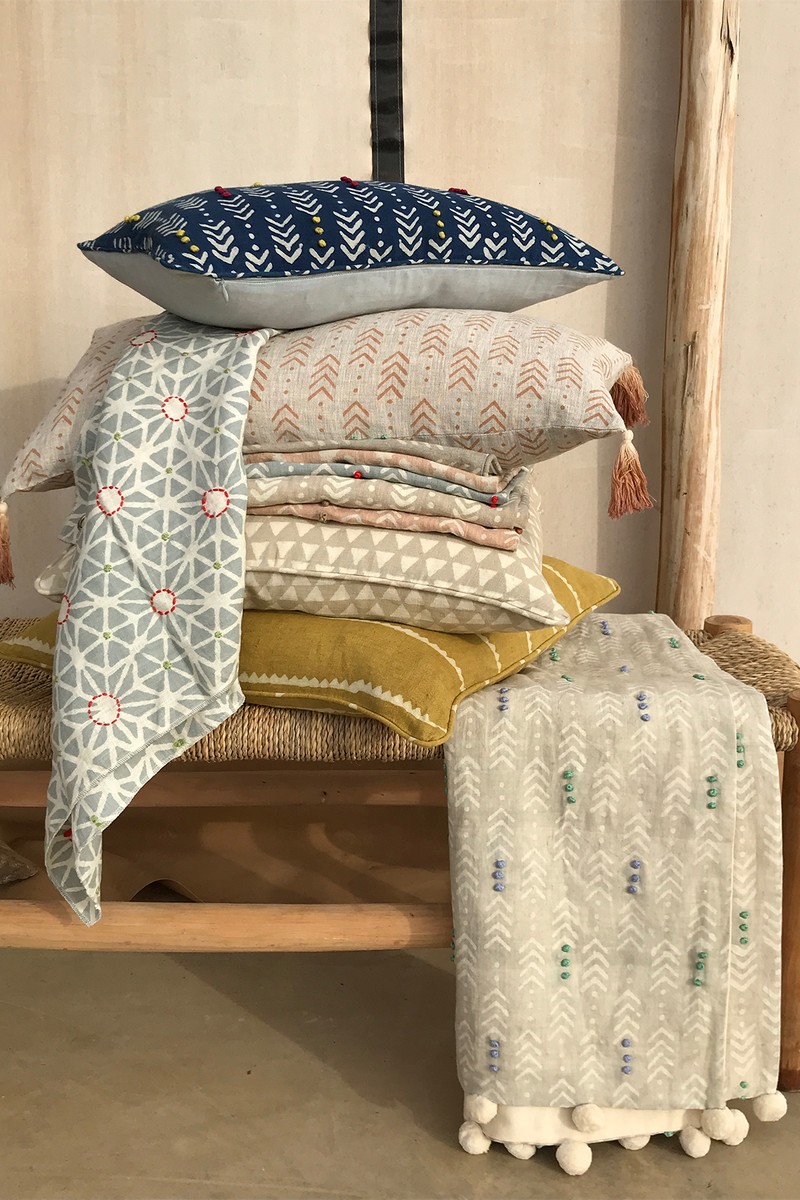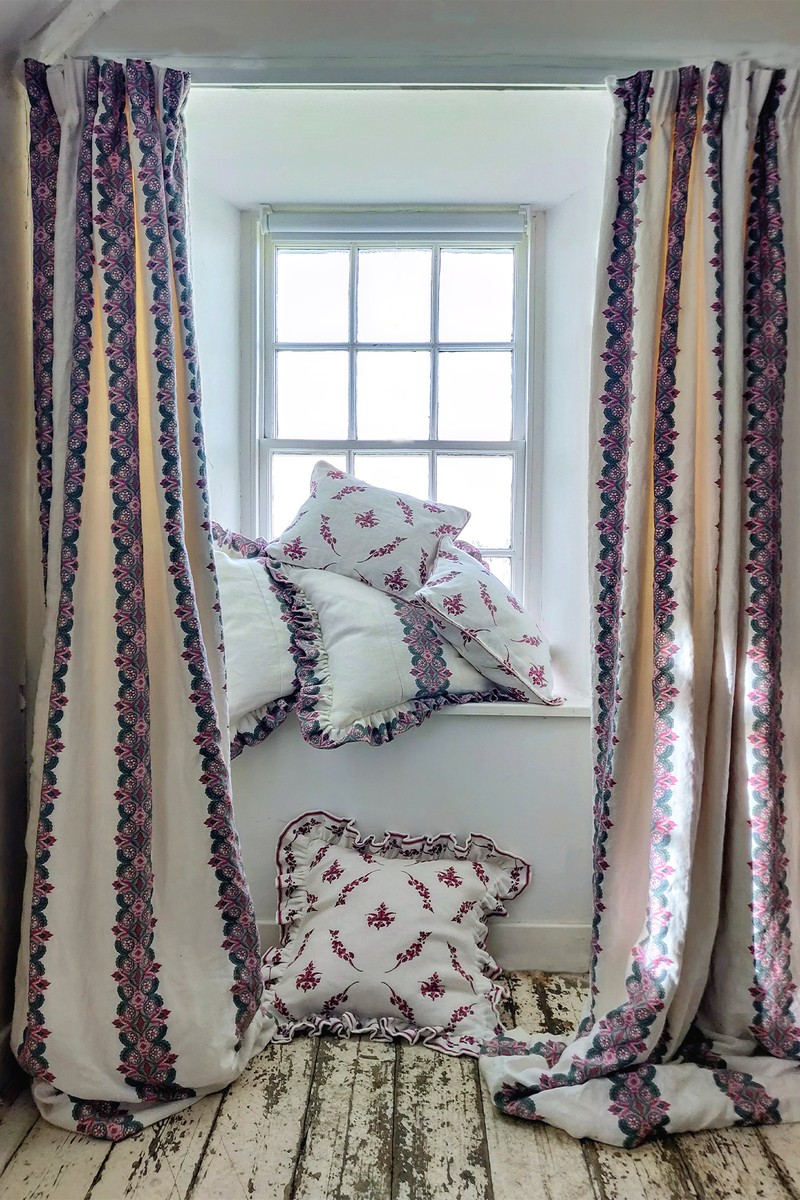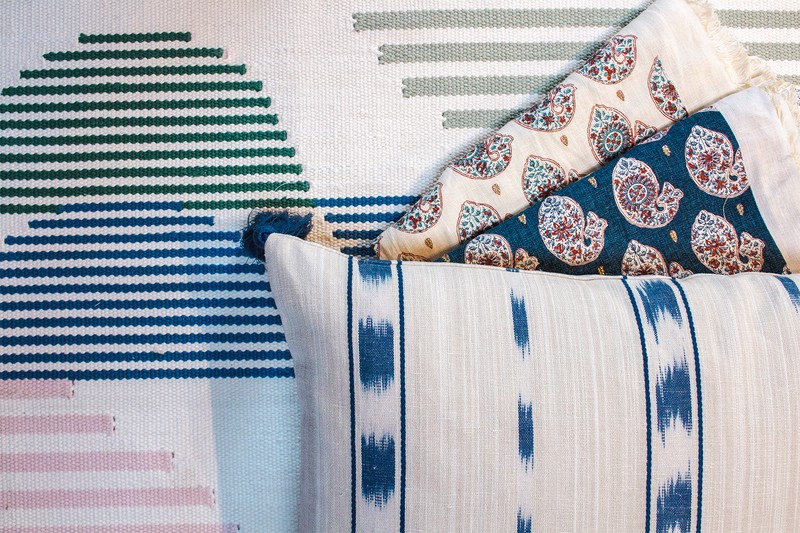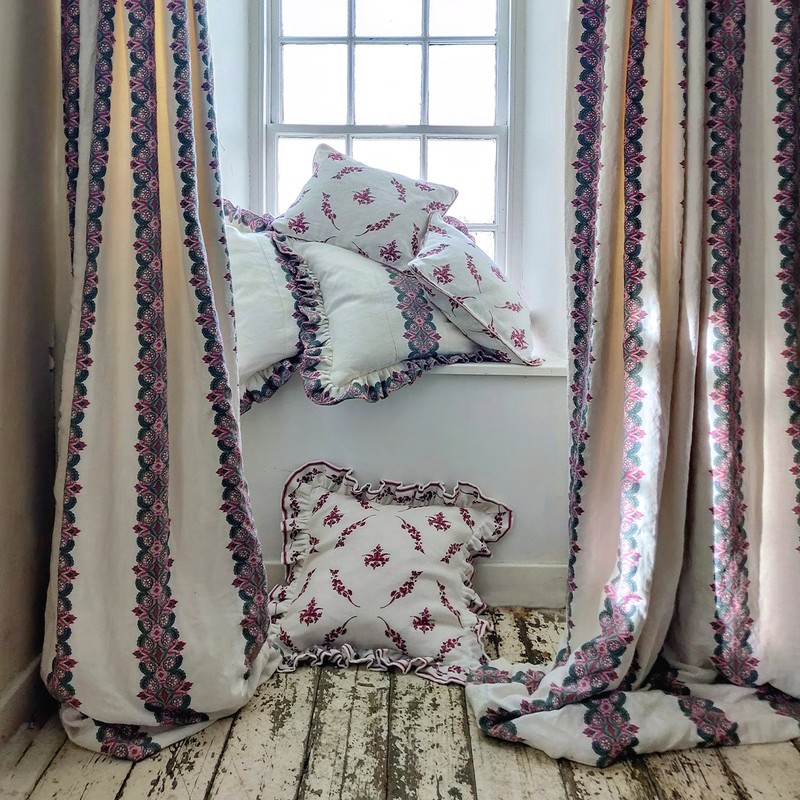How To Buy Luxury Fabrics For Less
Jules Haines started Haines Collection in 2020, having learnt as a textile designer about the shocking amount of waste in the industry. “In the UK, 900,000 tonnes of textile waste every year goes to landfill, and 42% of that is from interiors,” she explains. “My goal is to be the destination when it comes to designing your home in a beautiful and conscious way.”
When Jules came across a pop-up shop in Tunbridge Wells selling off high-end fabrics, she had her lightbulb moment. “It made me think, there should be an interiors equivalent of Vestiaire Collective. Then, when I started asking my contacts, I discovered many of them had allotted warehouse space just to store huge amounts of fabric remnants, which they would then sell in annual sales or simply send to landfill.”
With an established supply, Jules launched Haines Collection as a marketplace offering a desirable discounted range of brands online, including Linwood, Sanderson and Christopher Farr. “Many are print ‘seconds’ – which might mean the colour is ever so slightly ‘off’ but you or I wouldn’t even notice; the quality is still so high,” explains Jules.


With a dedicated audience that’s committed to being environmentally responsible, it was time to launch Haines Curates – a collection of designers working to become more environmentally friendly. Initially launching with an edit of ten designers who all align with Haines Collection’s core values, more names will be added as the platform develops. “It means our followers can feel confident about supporting interiors brands that have a minimal impact on our planet,” explains Jules. “We’re looking to include wallpaper, mirrors, lights and rugs in the future, so eventually you should be able to use us to furnish your entire home with luxury items that also have a responsible footprint.”
The new online offering brings together a collective of names from the textiles and interiors industry, with a particular focus on British designers. While Haines Collection will continue to offer salvaged and repurposed designs in limited quantities through Haines Curates, customers will also be able to order new materials and designs created by brands with minimal environmental impact.
Haines Curates is available at HainesCollection.co.uk

Inspired? Here Are Ten Eco-Conscious Textile Brands To Have On Your Radar…
Working in London, Beki screen prints all her designs by hand, and all of her soft furnishings are made from natural linen or cotton drill. A small production chain gives her complete oversight on all designs, with everything made to order to keep waste low. Even better, all offcuts are repurposed into samples or used for packaging.
Bethie’s textiles collection is made to order and printed in the UK using materials that can either biodegrade naturally, be recycled or last a lifetime. That means zero chemicals and only organic or natural fabrics – so each product is completely compostable and biodegradable.
Using only 100% Global Organic Textile Standard certified organic cotton, linen, pure silk and recycled cotton papers, The Campbell Collection textiles are entirely free of toxic chemicals and use only natural vegetable dyes and azo-free dyes. In addition, 10% of annual profits go back into the communities where their products are made.
Launched during lockdown in 2021 by British textile artist Amelia Ayerst, Duo Hue creates digitally embroidered textiles using scraps of material and waste sourced from other designers and brands. These remnants are turned into limited-edition cushions which are all made to order.
All of Norwegian designer Gyri Susrud’s textiles are Oeko-Tex certified using natural flax (a crop that requires lower water cultivation than other materials) which is grown and harvested in western Europe where EU law regulates pollutants and energy use. Gyri also focuses on using digital prints (a largely waterless technology) and sustainable inks.
Working only with pure natural linen and wool – two of the most sustainable textiles available – Caroline Inchyra’s designs are printed digitally with non-toxic water-based pigment inks. In 2015, Caroline switched from screen printing to digital – being able to print-to-order limits waste, while the printing and warehousing footprint is much smaller.
As well as sourcing traceable and natural materials, Mahala Textiles only works with suppliers from Sedex – a sourcing platform for building ethical supply chains. Sourcing cotton from the Better Cotton Initiative, it uses water-based pigments for dying and water is refiltered so it can be reused in the production process. It also redirects 2,800 litres of clean water per metre of fabric sold to communities that really need it.
Producing textiles in small batches for minimal use of energy and low waste, Nichola works with her supplier in Jaipur to create a range of hand-printed fabrics and hand-embroidered textiles. Inspiration is taken from block and mud printing, before being translated onto natural materials using only non-harmful dyes.
Juliet Cornell founded Pukka Print in 2013 to try and preserve the traditional Indian block-printing technique, working directly with artisans in Rajasthan. All the collections are hand produced in small batches on natural linen using non-toxic dyes.
SF Studio’s fabrics are ethically and environmentally farmed in Europe. Woven in Edinburgh and printed to order in the UK, the Studio is committed to keeping its carbon footprint low, as well as nurturing local artisans. It also supports Trees for Life as part of carbon offsetting, aiming to plant a tree for every order placed, helping rebuild the Caledonian Forest in the Scottish Highlands.
DISCLAIMER: We endeavour to always credit the correct original source of every image we use. If you think a credit may be incorrect, please contact us at info@sheerluxe.com.


